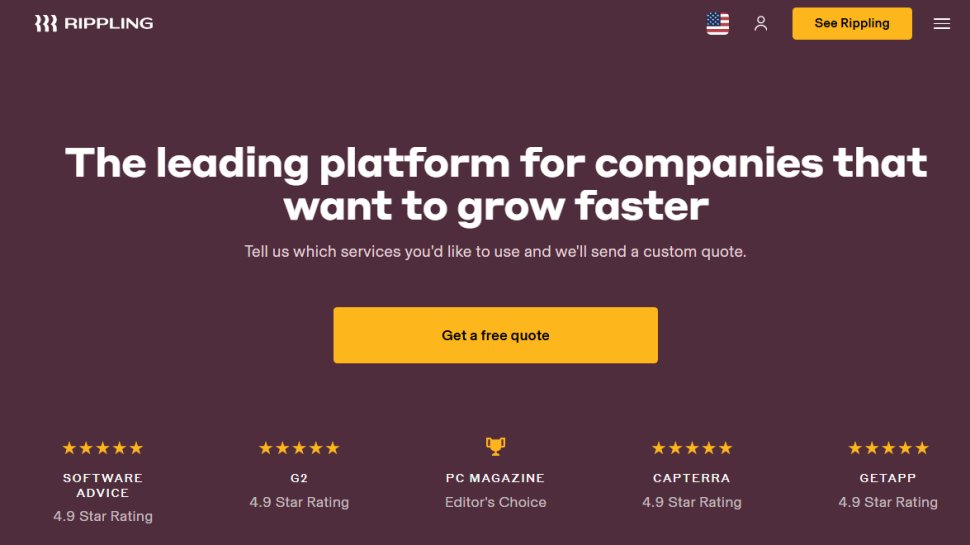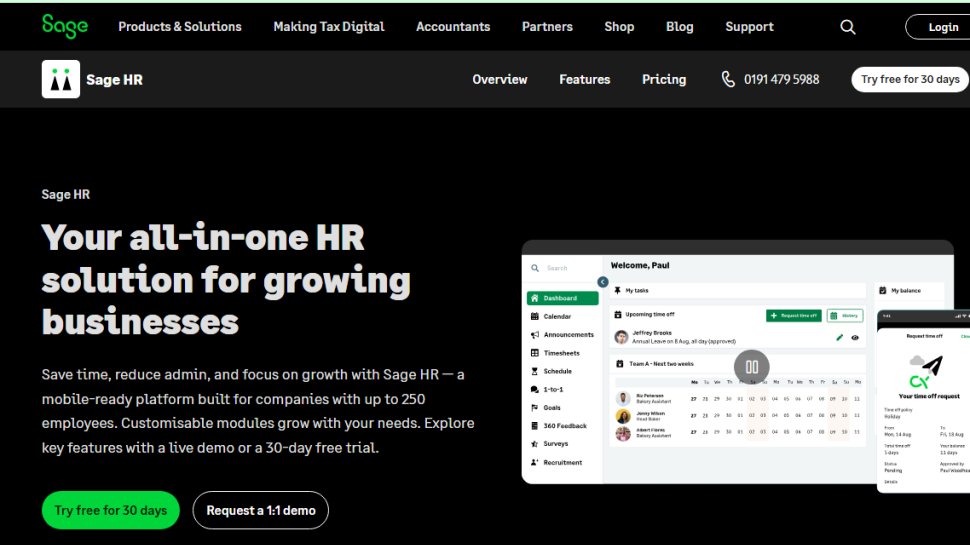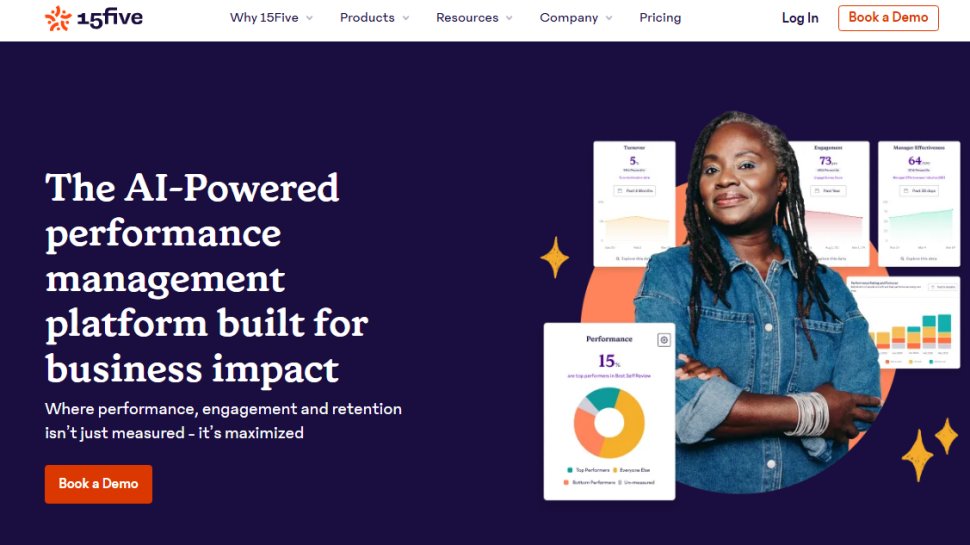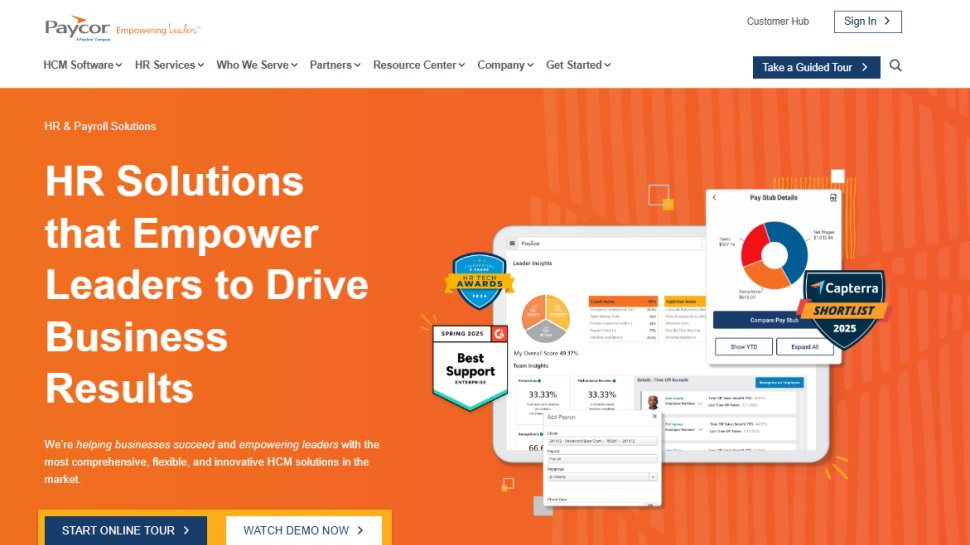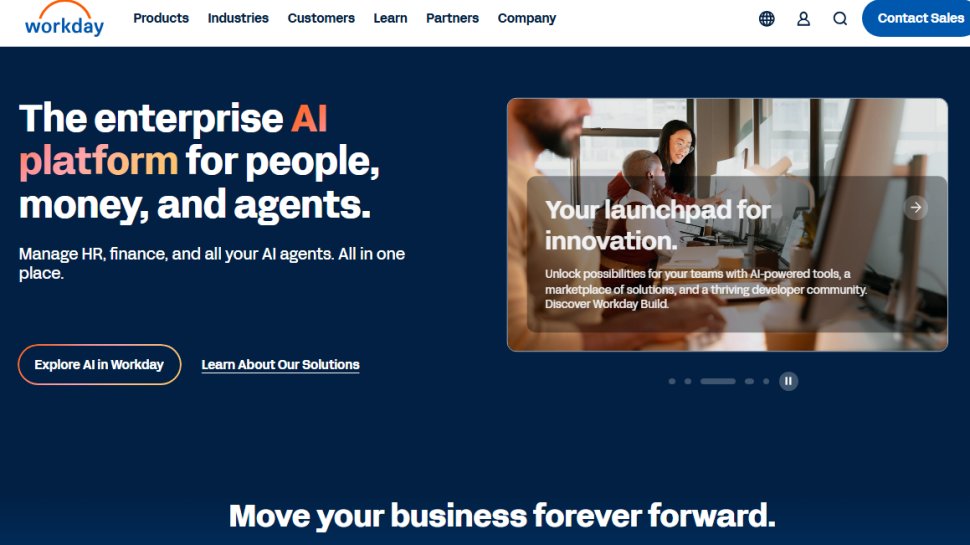Best performance management software of 2025
Communicate employee feedback effectively

Sign up for breaking news, reviews, opinion, top tech deals, and more.
You are now subscribed
Your newsletter sign-up was successful
We list the best performance management software, to make it simple and easy to recruit and manage employees while setting up a feedback system to better develop your business.
Human resource (HR) management is essential in every organization. Every organization with a significant number of employees will likely have a dedicated HR department responsible for managing other employees from recruitment to departure.
Talent management is a subset of HR dealing with recruiting a skilled workforce and helping them stay productive and remain with the organization for as long as possible. When done correctly, talent management can boost the overall performance of the company and make it more competitive.
There are many software tools that help businesses perform talent management. These tools address the four major pillars of talent management; recruitment; performance management; learning and development; and compensation management. Traditional HR software systems focus on simple processes like payroll and time management, but talent management tools focus on helping employees achieve long-term organizational goals.
We tested different talent management software platforms to identify the best ones. We chose our finalists based on important factors including pricing, features, performance, customer support, etc. These tools have their advantages and disadvantages but, overall, are the best talent management systems your organization can adopt.
Also check out the best HR software.
The best talent management software of 2025 in full:
Why you can trust TechRadar
Best performance management software overall
1. Rippling
Reasons to buy
Reasons to avoid
Rippling is an all-in-one workforce management platform providing tools to manage your staff payroll, expenses, devices, and more from a single app. If you choose Rippling, you may not need another software to help you manage your employees.
Rippling offers payroll and compensation management features. You can process and automate payroll regardless of employees' location. The platform can automatically track hourly work and paid time off and perform tax computations. When it's time to send payroll, Rippling can handle that for you.
Rippling enables businesses to hire, pay, and manage their talent in one app. Every employee will be paid in their local currency, with Rippling automating compliance across different countries. You can use the platform to track your employees' performance and carry out performance reviews.
Rippling offers a Learning Management suite, a pre-built library of over 1,000 courses covering important workplace activities such as cybersecurity, data management, communication, etc.
Rippling's basic pricing starts at $8 per user per month. Additional features can increase this base price by a significant amount and make Rippling expensive, especially for companies with hundreds of employees.
Best performance management software for hiring
2. Sage HR
Reasons to buy
Reasons to avoid
Sage HR is a simple talent management platform. It has an intuitive interface that makes the platform enjoyable to use.
You can use Sage HR to manage employee performance seamlessly. Managers can set goals for subordinates to meet and keep track of the progress as they work to meet those goals. Colleagues can provide honest feedback to each other via the 360 Feedback tool.
You can use Sage HR to manage recruiting and onboarding. The platform offers tools to facilitate all levels of the recruitment process, starting from the job posts to applications to interviews and finally onboarding. You can use Sage HR to manage your company's Careers Page and get applications from prospective employees.
Employees can submit expenses on Sage HR by simply snapping the receipts. The Sage HR mobile app automatically extracts the data from the receipt and converts it into expense reports. You can automate the payouts once every expense report is confirmed.
Sage HR starts at $5.5 per month per user for the basic features. However, the price increases as you add more features such as timesheets, expense reporting, performance management, shift scheduling, etc. The price can go as high as $16 per user per month with additional features.
Best performance management software for performance
3. 15Five
Reasons to buy
Reasons to avoid
15Five is a talent management software with a focus on performance management. The platform makes it very easy to set goals and track progress for employees. Managers can monitor employee performance from a single dashboard and provide guidance and feedback when needed. The platform comes with an extensive library of information teaching managers how to perform their jobs effectively.
You can easily create surveys for employees to fill out and help you identify what needs improvement within your organization. Managers can perform weekly check-ins with their subordinates and schedule 1-on-1 meetings with them.
The team behind 15Five focused their development efforts on performance management, which the platform does excellently. However, it lacks many features outside of performance management, unlike many rivals.
Pricing starts at $4 per user per month, which is relatively affordable, and goes up to $14 per user per month on the highest plan.
Best performance management software for features
4. Paycor
Reasons to buy
Reasons to avoid
Paycor is an all-in-one human resources management platform. Talent management is one of the platform’s main areas. You can manage your hiring process from start to finish with Paycor. It starts by creating job boards and receiving feedback from interested candidates. Then you can sift through data to see which candidates you want to interview; you can create standard interviews with scorecards for each candidate. Once you’re done, you can hire and onboard the candidate easily.
Paycor makes it easy for employees to receive feedback from managers or fellow colleagues. There's a 1-on-1 conversation tool that streamlines conversations between managers and direct reports. Managers can set clear goals for subordinates to follow and track their progress. There's pre-built learning content for employees to learn the ins and outs of working in an organization.
You can use Paycor to plan and manage employee compensation. The main drawback of this platform is that there’s no standard pricing plan. You’ll have to contact Paycor’s sales team for a custom quote, and the platform is known to be expensive.
Best performance management software for customizability
5. Workday
Reasons to buy
Reasons to avoid
Workday is an all-in-one HR management platform with tools that make it easy for organizations to manage their talent. You can use this tool to monitor employee performance dutifully. The platform provides a dashboard that makes it easy to monitor key performance metrics for all employees and helps you understand who needs improvement. It helps managers get factual data to guide their decisions.
Workday makes it easy for employees and their managers to collaborate and provide feedback to each other. Workers can solicit feedback from managers at any time to let them know what needs improvement. Your company can set up a Talent Marketplace where workers can seek out opportunities to thrive within the organization.
Workday has a mobile app, making it convenient for users. Anyone can download the app and solicit or provide feedback conveniently.
A major drawback of Workday is that it doesn’t have standard pricing. You’ll need to contact the company for a custom quote. However, Workday is very customizable; you can tweak the platform to fit just what your organization needs.
We've also featured the best human capital management (HCM) software.
Best talent management software FAQs
How to choose talent management software
Cost
Cost is the primary consideration when choosing a tool. Ensure you pick a platform you can afford in the long term to avoid potential troubles. Check the pricing page of your desired software and ensure you’re okay with what you see. Read the fine print to see if there are any hidden costs.
Talent management platforms usually charge a monthly or annual fee for each user. Some use custom pricing, meaning you must contact the company’s sales team for a quote. Either way, ensure you pick something you can easily afford.
Ease of use
It’s essential to pick a platform that’s easy to use and navigate. A platform with an intuitive interface will make things easier both for the HR department and the employees they’re managing. Badly-designed software can frustrate users, especially non-technical ones, and cause people to make costly mistakes.
Customer support
Things can go wrong at any time, and you’ll need external help to sort out the issue. You should be able to contact a human support representative for help when things go wrong. The platform should also offer complementary support resources such as user guides, how-to articles, video tutorials, and extensive documentation. Check user reviews to see if the platform is being commended for offering excellent customer support.
Features of talent management software
1. Applicant tracking and recruiting
The platform should enable you to create job postings and get feedback. You should be able to communicate with people who responded to your organization’s job postings across different channels. The platform should keep job candidates informed on their progress throughout the hiring process and help you deliver valuable feedback.
2. Compensation management
The system should let you manage pay, expenses, pay adjustments, bonuses, stocks, and other forms of compensation for employees. It should let you create compensation plans for different levels of employees and guidelines for increasing the compensation when needed.
3. Mobile app
These days, any platform without a mobile app is missing out. Almost everyone has a smartphone and likes to work with it on the go. Your talent management system should have a mobile app that lets HR staff and employees make some changes from anywhere as long they have an internet connection.
4. Performance management
Your platform should enable you to monitor employee performance and productivity. It should have tools for performance reviews and give you insights into all employees' productivity to help you identify who needs to put in more effort or not.
How we tested the best talent management software
Where possible, we sign up for every talent management software product that we review. We look at how easy it is to get started and enter data to see what the program is like to use. Every key feature is put to the test and compared to what's offered in competing products.
We research a range of other factors, including data security, ongoing support, and pricing models, looking at free versions where available. If we can't physically test the best talent management software, we base our verdict on information found on the company's site, peer reviews, and user testimonials.
Read how we test, rate, and review products on TechRadar.
Get in touch
- Want to find out about commercial or marketing opportunities? Click here
- Out of date info, errors, complaints or broken links? Give us a nudge
- Got a suggestion for a product or service provider? Message us directly
- You've reached the end of the page. Jump back up to the top ^
Sign up to the TechRadar Pro newsletter to get all the top news, opinion, features and guidance your business needs to succeed!
Stefan has always been a lover of tech. He graduated with an MSc in geological engineering but soon discovered he had a knack for writing instead. So he decided to combine his newfound and life-long passions to become a technology writer. As a freelance content writer, Stefan can break down complex technological topics, making them easily digestible for the lay audience.
